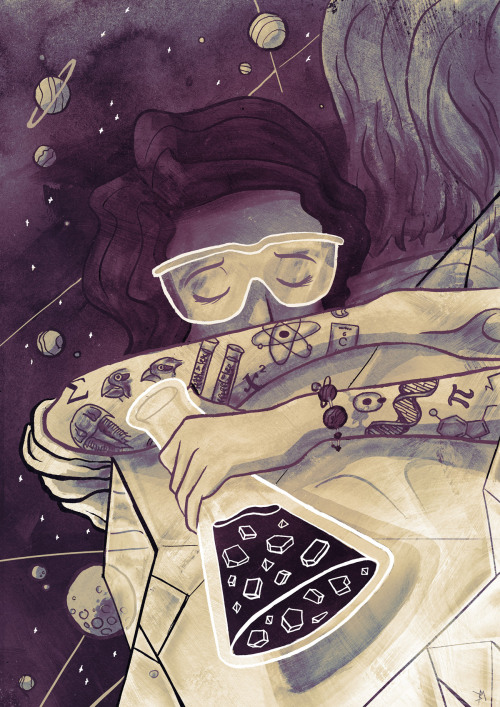Punk Science: carbon sucks!
Hello again, fellow punk scientists.
This is part two of the climate change miniseries from Punk Science.
Last time, we explored the arctic seed vault on Svalbard, and the way climate change has affected it.
For this final column of the semester, it seemed like a good idea to look at something a bit more positive than the troubles of a doomsday seed bank.
To that end, let’s take a short walk from Svalbard over to a small island country in the north Atlantic: Iceland.
Earlier this fall, a new kind of industry began digging its roots into the volcanic soil of Iceland, literally. That fledgling industry is centered around a technology called carbon capturing.
The goal of this plant, and of the handful of others like it around the world, is to suck CO2 directly out of the air and then store it underground.
The process itself is pretty simple.
At the Orca plant, the name of the newest and largest carbon capturing plant in the world, large box filters absorb carbon dioxide from the air. Think of the units a lot like modern shipping containers. The fan units are about the same size and shape, and can be stacked on top of one another, making it possible to get multiple units up and running fairly quickly.
From there, it’s a simple matter of chemistry.
Once a filter is full of captured CO2, the unit closes up and the interior is heated, roughly to boiling. This turns the CO2 into a concentrated gas that is then mixed with water and pumped underground. There it remains until, eventually, the CO2 turns into stone.
This process of taking carbon emissions out of the air and putting them in a safe place underground is relatively new, and its quite expensive.
The Orca facility alone will only pull about 4000 metric tons of CO2 out of the air annually when at maximum capacity. Each metric ton of carbon costs between $600 and $800 to remove, and in the process, 10 tons of carbon are generated for every 100 removed, just by powering the plant from a local geothermal power plant.
Of course, the beauty of this new and growing technology is its scalability. Currently, there is a plant under construction in the Southern U.S. that is being constructed for Occidental, an oil company looking to reduce its carbon footprint. The facility there will be orders of magnitude larger than the one in Iceland, with current projections estimating that the plant should be able to pull about a million tons of carbon out of the atmosphere when it is complete.
While this may sound impressive, it is also worth noting that it will take a lot more than 1 million tons of CO2 removed in a year to reverse climate change. Cutting emissions is still a major part of the work that needs to be done to help alleviate climate change, though carbon capturing is rapidly becoming as important on that front. To reach pre-industrial levels, the world not only has to reduce emissions, but also remove billions of tons of carbon from the atmosphere.
Still, this isn’t meant to be all doom and gloom, and some of the side benefits of carbon capturing are as whimsical as the technology is fantastic.
Carbon is a useful resource and has a wide range of utility in many industries. One of the major things carbon is used for is to help make aviation fuel, which is a pretty big industry by itself. Other uses include making fertilizer for farming operations, and in one particular case in Switzerland, using atmospheric CO2 for carbonation in bottled beverages.
Such things make the imagination wander, and there is a potential future where you could pay extra for a can of Coke that has been carbonated with atmospheric carbon. Heck, maybe it could be considered a luxury ingredient someday. Wouldn’t that be something?
For now, that’s all the science for this week. Make sure to watch for the next installment of Punk Science, where we’ll be looking at yet another fascinating topic in the STEM world. Until next time, farewell from Punk Science, where we’re making science cool again!

Senior, BFA Creative Writing major from Craftsbury, VT.
Resident Punk Scientist and Basement Medicine Web Wrangler.
I love science and writing, and...




